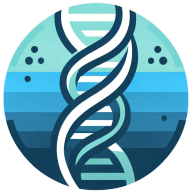Welcome to the fascinating world of bioinformatics and its instrumental role in molecular biology. This blog post will delve into the various bioinformatics tools that are revolutionizing the field of molecular biology. We will explore their features, applications, and the impact they are making in scientific research. Whether you're a seasoned researcher or a curious enthusiast, this comprehensive guide will provide you with a deeper understanding of this dynamic intersection of biology, computer science, and information technology.
The Convergence of Bioinformatics and Molecular Biology
The field of molecular biology has always been data-intensive. With the advent of high-throughput technologies, the amount of data generated has grown exponentially. This surge in data necessitated the development of bioinformatics, a discipline that uses computational tools to analyze, manage, and visualize biological data.
Bioinformatics tools have become indispensable in molecular biology. They allow researchers to sift through vast amounts of data and extract meaningful information. These tools have applications in various areas, including genomics, proteomics, and metabolomics.
Genomics involves the study of an organism's entire genetic material. Bioinformatics tools help in sequencing genomes, identifying genes, and understanding their functions. Proteomics, on the other hand, focuses on the study of proteins. Bioinformatics aids in predicting protein structures and functions. In metabolomics, bioinformatics helps in identifying and quantifying cellular metabolites.
Key Bioinformatics Tools in Molecular Biology
Numerous bioinformatics tools have been developed to cater to the diverse needs of molecular biology. These tools can broadly be categorized into sequence analysis tools, structural analysis tools, and data mining tools.
Sequence analysis tools, such as BLAST and FASTA, are used to compare and align sequences. They help in identifying similarities and differences between DNA, RNA, or protein sequences. Structural analysis tools, like RasMol and PyMOL, are used to visualize molecular structures. They provide insights into the three-dimensional structure of molecules, which is crucial for understanding their function.
Data mining tools, such as Weka and RapidMiner, are used to analyze large datasets. They apply machine learning algorithms to uncover patterns and relationships in the data. These tools are particularly useful in genomics and proteomics, where the data volumes are massive.
Applications of Bioinformatics Tools in Molecular Biology
Bioinformatics tools have found wide-ranging applications in molecular biology. They have been instrumental in advancing our understanding of biological processes at a molecular level.
In genomics, bioinformatics tools have played a key role in the Human Genome Project. This project aimed to sequence the entire human genome, and it would not have been possible without the computational power of bioinformatics. These tools have also been used to identify genes associated with various diseases, paving the way for personalized medicine.
In proteomics, bioinformatics has been used to predict protein structures and functions. This has implications in drug discovery, as it allows researchers to design drugs that can interact with specific proteins.
In metabolomics, bioinformatics tools have been used to identify and quantify cellular metabolites. This provides insights into the metabolic pathways in a cell and can help in understanding diseases at a molecular level.
The Impact of Bioinformatics Tools on Molecular Biology Research
The impact of bioinformatics tools on molecular biology research has been profound. They have not only streamlined data analysis but also opened up new avenues of research.
By automating data analysis, bioinformatics tools have significantly reduced the time and effort required to analyze large datasets. This has allowed researchers to focus more on experimental design and interpretation of results.
Moreover, bioinformatics tools have enabled researchers to tackle complex biological questions. They have made it possible to study biological systems in a holistic manner, rather than focusing on individual components. This systems biology approach has led to a deeper understanding of biological processes.
The Future of Bioinformatics Tools in Molecular Biology
The future of bioinformatics tools in molecular biology looks promising. With the continuous advancement in technology, these tools are expected to become more sophisticated and powerful.
One of the key trends is the integration of artificial intelligence (AI) in bioinformatics tools. AI algorithms can learn from data and make predictions, which can be extremely useful in analyzing complex biological data.
Another trend is the development of cloud-based bioinformatics tools. These tools can be accessed from anywhere and do not require any installation. They also offer high computational power, which is necessary for analyzing large datasets.
In conclusion, bioinformatics tools are set to play an even more crucial role in molecular biology in the future. They will continue to drive innovation and discovery in this exciting field.
Challenges and Opportunities in Bioinformatics Tools for Molecular Biology
Despite their immense potential, bioinformatics tools also face several challenges. One of the main challenges is the management of large and complex datasets. As the volume of biological data continues to grow, there is a need for more efficient data management strategies.
Another challenge is the integration of data from different sources. Biological data is often heterogeneous, and integrating it can be a complex task. However, this also presents an opportunity for the development of new tools that can handle such integration.
Moreover, there is a need for more user-friendly tools. Many bioinformatics tools require a certain level of programming knowledge, which can be a barrier for biologists. There is an opportunity here for the development of tools with more intuitive interfaces.
Harnessing the Power of Bioinformatics Tools in Molecular Biology
In the realm of molecular biology, bioinformatics tools have emerged as powerful allies. They have transformed the way we analyze and interpret biological data. Despite the challenges, the future holds immense potential for these tools. As we continue to harness their power, we can look forward to many more groundbreaking discoveries in molecular biology.

